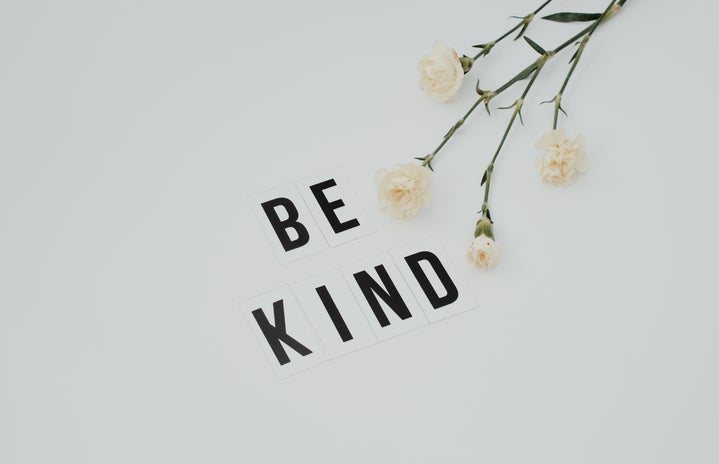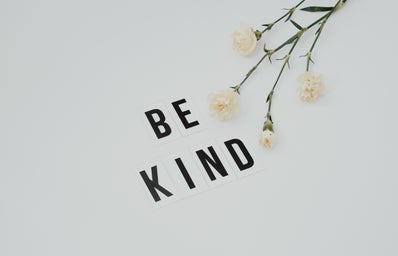Have you ever heard the “F” word and felt instantly offended? No, not that “F” word. “Fat.” To many, this is one of the dirtiest strings of letters in the dictionary; an insult that perpetuates stigma about the weight or body shape of another. When you search “definition of fat,” into the search bar on Google, the answer provided says this:
Adjective
1. (of a person or animal) having a large amount of excess flesh. “the driver was a fat, wheezing man”
This is the way Oxford Languages defines the word. The definition itself depicts an accurate representation of how to identify the word; the example is where the negative connotation lies. While the example could have been worse, I would prefer to live in a world where, when using comparisons, we raise our standards to meet the heights of others, as opposed to dropping them lower and acknowledging that because they are not the only one that low, it can be used as an excuse. Take out the “F” word and you are left with a wheezing man. That does not often paint the picture of glory. I am not trying to take a huge leap here, but I do believe the addition of the “F” word allows the negative narration to procreate.
Dictionary.com defines “fat” as:
1. having too much flabby tissue; corpulent; obese:
a fat person.
2. plump; well-fed:
a good, fat chicken.
In my opinion, Dictionary.com does a better job of staying true to the direct meaning of the word without bringing in real-world prejudice to aid the narrative. This being said, Oxford Languages is a prime example of the point I am hoping to get across: “fat” has turned into a cruel, fighting word, often used by those trying to deflect the negative attention they may be receiving or feeling and using it as a coping mechanism, or an argument to make during a sensitive debate once they have run out of legitimate arguments to make.
Growing up overweight, obese, “fat,” simply hearing the word aloud brought pain and embarrassment along with it. Try being the biggest kid in class while your teachers preach the dangers of obesity. When the conversation leads to obese people not taking care of themselves—not eating the right things, and never exercising—cue the entire class glancing at you from time to time, whether due to humor or sympathy. Do not get me wrong, I have lived a more privileged life than many due to other factors; however, being the fat girl is hard when that is everyone’s first impression of you. Due to the negative nature of the word, you could be the kindest person in the world, but implicit bias too often trumps the willingness to look beneath the surface.
As a fellow human being, I really wish others would look beyond the excess flesh in front of them. I have always been afraid to speak, to go up to new people and make new friends, thus being labeled shy. But I think it is much more than that for me. I am not radically shy; I am simply aware enough of the world and prejudice around me. Not to say all people fall into this category, but there is no way to tell which ones do and do not. You go from being called fat on the playground, to being the joke contestant in the party’s game of Smash or Pass.
As a past insecure middle schooler, you learn that the word fat also begins to carry the world ugly inside of it. And makes dating harder; even if someone wanted to date you, could they tell their friends about you without getting picked on too? I have known since pre-k, as I am sure a classmate or five had told me, that I am fat (in addition to having eyes of course, which some people seem not to understand as they are stating the obvious). But despite that, I have never once thought of myself as particularly ugly. I have a decent enough face, and my heart is pure gold. I have never once made an argument that I was not fat. I have argued logistics against specific jokes about animals that my weight is equal to, of course: it is friends of mine who, over the years, have argued it to me. Like I said, I may not have 20/20 vision, but my eyes work well enough to see the difference in size between me and my peers or the number on a scale. So, while obviously overweight, up until a few years ago (I am now 18), I still had friends trying to encourage me by telling me I am not fat. Blatant lies of course, but the intent was pure. Again, that just shows how incredibly grueling people think the word “fat” is—they did not want their friend to associate themself with it. My friends meant no harm, but just like Internet trolls or boys on the playground, they prolonged the reality that “fat” is a bad word.
And as a now self-proclaimed fat girl, I will say that at times, levels of insecurity and self-doubt can be high. Colbie Calliat has a song with lyrics that question the validity of the need to feel this way, “when you’re all alone, by yourself, do you like you?” This being said, the lyrics prove an important point. Something that I always have overdone is comparing myself to others.
When I was younger and interested in acting and wanting to start dance classes, starting at the age of 10, I already felt discouraged because I felt as if I was already so behind—some girls started performing from the time they came out of the womb. My weight and lack of agility would have been a problem too of course, but I mainly fell short in my comparisons to others. I would also look up the weight and dress sizes of celebrities that I adored who posted beautiful pictures on Instagram: what would I have to weigh to look that good? I would either use celebrities around my height, or calculate approximately how many pounds they weighed per inch of height, and set up a proportion.
This caused me to go through a period of obsession, excess exercise and calorie counting. Believe it or not, skinny girls are not the only ones who get eating disorders. My modus operandi transformed into a diet that either consisted of 500 calories a day or 5000 calories a day, varying daily. I did lose weight for a while during the 500 calorie spurts, but you can only push your body for so long before your mind kicks in to tell you that your method is not working anyway, and it is definitely not healthy.
In saying all of this, I want to be an example for men, women and everyone in between. Comparing yourself to anyone but yourself does not create the best you; if anything, it may create a mediocre version of the person in comparison. Comparing yourself to a person who has lived a different life, experienced different things, maybe with different/more opportunities or privileges than you, is a recipe for disaster. The world we live in is too diverse and brings with it the necessity for varying and unique people and positions.
Do I want to get good grades? Yes, but it doesn’t mean I have to compare them to my older sister’s; I should compare them to my grades from last semester. Do I want to lose weight? Yes, but it does not mean I need to pick a number smaller than what my frame can support and starve myself until I get there; I should make a lifestyle change and make new goals and strides along the way. If you like to sing, Ariana Grande is not your competitor; the version of your voice from last year is. Sportsball players need not compare themselves to those in the NBA or NFL. On top of being professionals, everyone starts somewhere, and the only way to get better is to challenge your own skills.
Fat, skinny or average, we are all human beings. Human beings deserve a certain level of respect and kindness, no matter who they are, where they come from, what they look like … Race, gender, sexuality and orientation, disabilities, socioeconomic status, age, any demographic: none of these factor into the beauty within.



